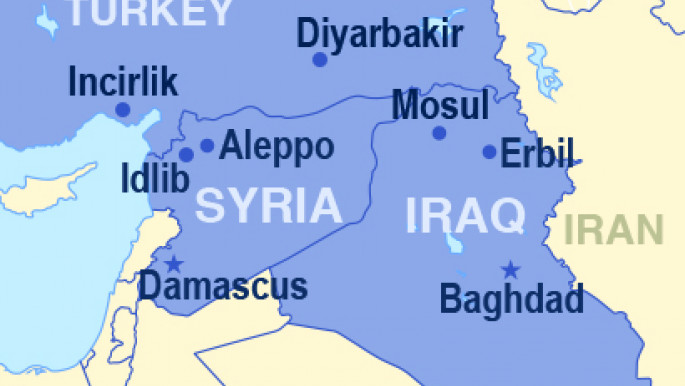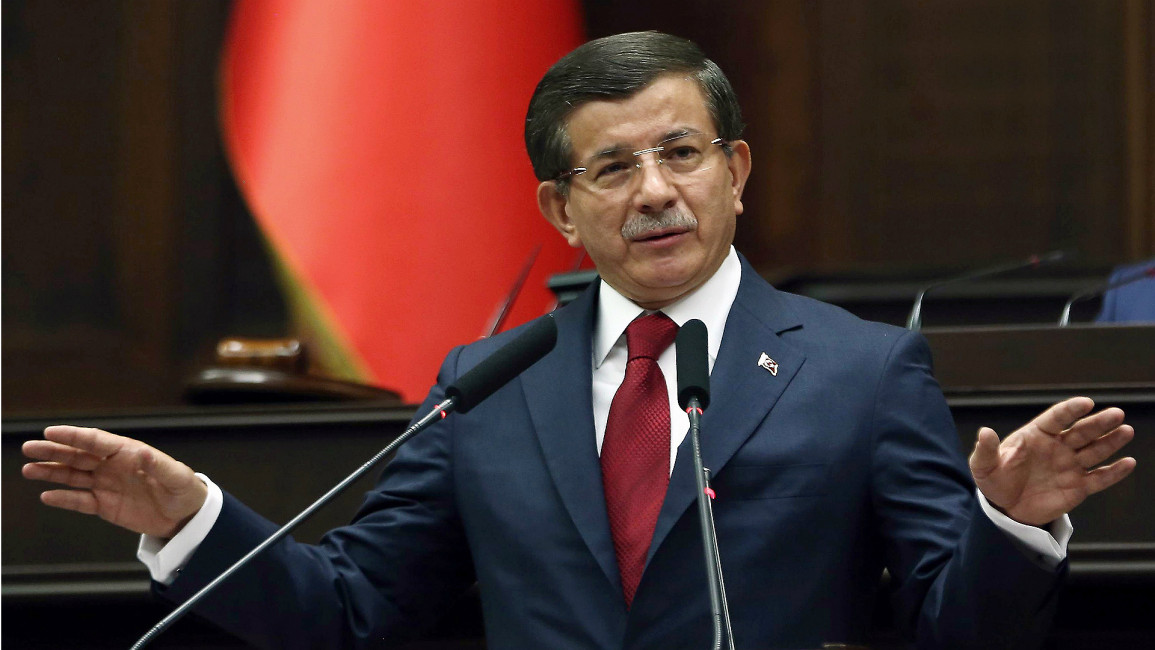
Turkey’s twin offensive
A year after the US started pushing Turkey to engage more substantially against the Islamic State (IS), Ankara jumped in with both feet. Over the last few weeks, Turkish jets have been bombing PKK as well as IS positions.
The move seems to be a major tactical shift. However, if Turkey is going to be “in the fight” against IS, it’s going to do it on its own terms.
Whilst everyone may agree that Turkey’s new strategy marks a new chapter in the war, nobody is quite sure how it will read.
| If Turkey is going to be 'in the fight' against IS, it’s going to do it on its own terms |
Reports are still emerging as to what exactly the long-awaited strategic agreement between Turkey and the US looks like.
Americans gains from the agreement are more obvious. Allowing American aircrafts to use Turkish air bases to hit IS means that instead of flying missions from carriers in the Gulf, some 1,200 miles away, US warplanes will operate from Incirlik and other Turkish airbases which are only 250 miles away from Raqqa, IS de-facto capital.
Good news for Washington, bad news for IS
Meanwhile, NATO made an emergency meeting in Brussels last week to discuss Turkey's new military campaign.
Turkey has been floating its demands for a buffer zone on the border with Syria for over a year.
An internationally-recognised zone would require an unlikely permission from the UN Security Council.
Consequently, a de-facto or quasi-legal version over a pre-determined area in northern Syria seems to be Turkey’s aim.
If that is the case, Turkey’s zone is another nail in the coffin of Syria’s sovereignty.
United Nations aid Chief Stephen O'Brien warned Turkey last Tuesday against calling its planned buffer in northern Syria "a safe zone" unless there is a guarantee of protection for civilians who are likely to flood the area for help.
Why is Turkey’s 'IS-free' zone so complicated?
 |
|
Turkey’s new military initiative is not as simple as we would like it to be.
It is a symptom of a complex political constellation catalysed by tense geopolitical rivalries and it is in this context that the Kurdish groups come at play.
There are between 30 and 40 million Kurds divided between Turkey, Syria, Iraq and Iran.
In 1991, Turkey closed its border with Iraq in the face of huge numbers of Iraqi Kurdish refugees trying to flee from Saddam.
This led to the creation of a no-fly zone where the ‘Kurdish Regional Government’ ruled over Iraqi Kurdistan in an increasingly state-like manner ever since.
Turkey’s fears over the demands of its Kurdish population are manifested in its longstanding battle against the PKK.
The insurgency, largely fought in the predominantly-Kurdish southeast, has killed 40,000 people since 1984.
A fragile ceasefire has been holding since March 2013 but has been brought into question by Turkey’s new operations.
Under the pretence of fighting IS, Turkey’s targets in the last few days were predominantly Kurdish positions in Syria and Iraq.
Indeed, Turkish authorities have detained a total of 1,302 people in 39 provinces as part of a crackdown allegedly targeting members of ISIS, the Kurdistan Workers Party (PKK) and illegal leftist groups.
Turkey's Prime Minister, Ahmet Davutoglu, has said that he expects his country's allies to show solidarity and support for its campaign.
On Wednesday, the leader of Turkey's pro-Kurdish HDP opposition called on both sides to immediately halt fighting following Turkish airstrikes on Kurdish militants, in what Turkey says was a response to the increased attacks on security forces.
"Hostilities should immediately come to a halt," Selahattin Demirtas told the press, calling on all parties to act with "common sense."
Meanwhile the PKK described the peace process as "meaningless" but stopped short of formally pulling out.
Has the US just sold out the Kurds?
Senior Kurdish diplomats from Iraqi Kurdistan told me that whilst they welcomed Turkey’s operations against IS, there are concerns that Turkish President, Recep Tayyip Erdogan, could be using the IS fight as an excuse to pursue a more political conflict involving the Kurds.
A Washington Post editorial warned that the “Erdogan government also appears more interested, for now, in short-term tactical considerations”.
The American Foreign Policy magazine highlights the issue more starkly in a piece entitled, “Has the US Just Sold Out the Kurds?”
However, Obama’s deputy envoy to the international coalition battling IS, Brett McGurk, has taken steps to clear the air around the agreement with Ankara and other aspects of the conflict in a Tweet:
|
What is clear is that Turkey went on bombing both camps in Syria whilst initiating a domestic crackdown on the Kurds. This is only going to complicate an already volatile and bloody conflict.
Reports of Turkish Kurdish groups attacking oil pipelines used by Iraqi Kurdistan are perhaps the tip of what could be a chain of events that further destabilises an area in desperate need for peace initiatives.
James Denselow is a writer on Middle East politics and security issues. He is a contributing author to An Iraq of Its Regions: Cornerstones of a Federal Democracy? and America and Iraq: Policy-making, Intervention and Regional Politics Since 1958. He is a former board member of the Council for Arab-British Understanding (CAABU) and a Director of the 'New Diplomacy Platform'.
Follow on Twitter: @jamesdenselow
Opinions expressed in this article remain those of the author and do not necessarily represent those of al-Araby al-Jadeed, its editorial board or staff.




